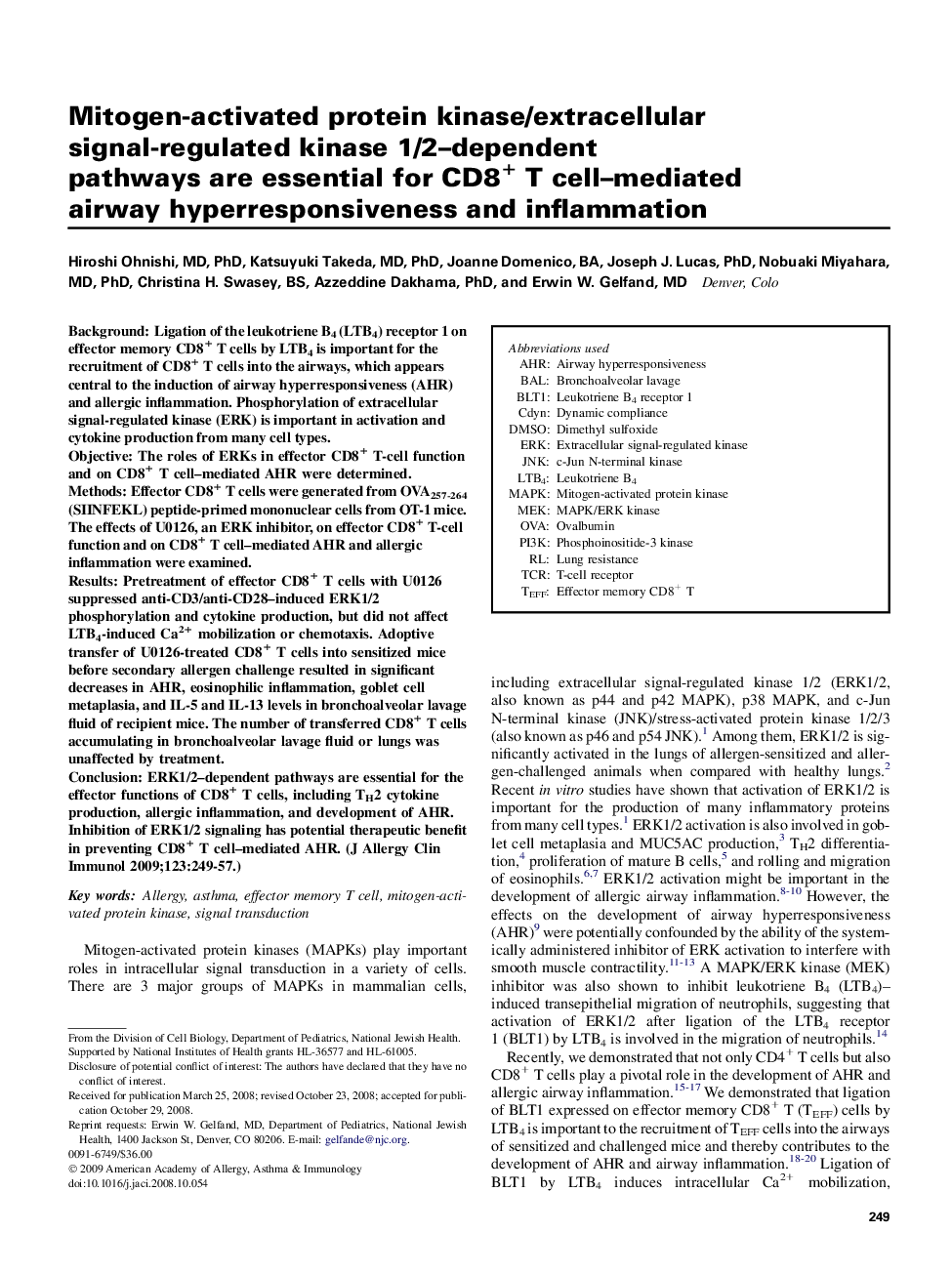| Article ID | Journal | Published Year | Pages | File Type |
|---|---|---|---|---|
| 3201147 | Journal of Allergy and Clinical Immunology | 2009 | 9 Pages |
BackgroundLigation of the leukotriene B4 (LTB4) receptor 1 on effector memory CD8+ T cells by LTB4 is important for the recruitment of CD8+ T cells into the airways, which appears central to the induction of airway hyperresponsiveness (AHR) and allergic inflammation. Phosphorylation of extracellular signal-regulated kinase (ERK) is important in activation and cytokine production from many cell types.ObjectiveThe roles of ERKs in effector CD8+ T-cell function and on CD8+ T cell–mediated AHR were determined.MethodsEffector CD8+ T cells were generated from OVA257-264 (SIINFEKL) peptide-primed mononuclear cells from OT-1 mice. The effects of U0126, an ERK inhibitor, on effector CD8+ T-cell function and on CD8+ T cell–mediated AHR and allergic inflammation were examined.ResultsPretreatment of effector CD8+ T cells with U0126 suppressed anti-CD3/anti-CD28–induced ERK1/2 phosphorylation and cytokine production, but did not affect LTB4-induced Ca2+ mobilization or chemotaxis. Adoptive transfer of U0126-treated CD8+ T cells into sensitized mice before secondary allergen challenge resulted in significant decreases in AHR, eosinophilic inflammation, goblet cell metaplasia, and IL-5 and IL-13 levels in bronchoalveolar lavage fluid of recipient mice. The number of transferred CD8+ T cells accumulating in bronchoalveolar lavage fluid or lungs was unaffected by treatment.ConclusionERK1/2–dependent pathways are essential for the effector functions of CD8+ T cells, including TH2 cytokine production, allergic inflammation, and development of AHR. Inhibition of ERK1/2 signaling has potential therapeutic benefit in preventing CD8+ T cell–mediated AHR.
